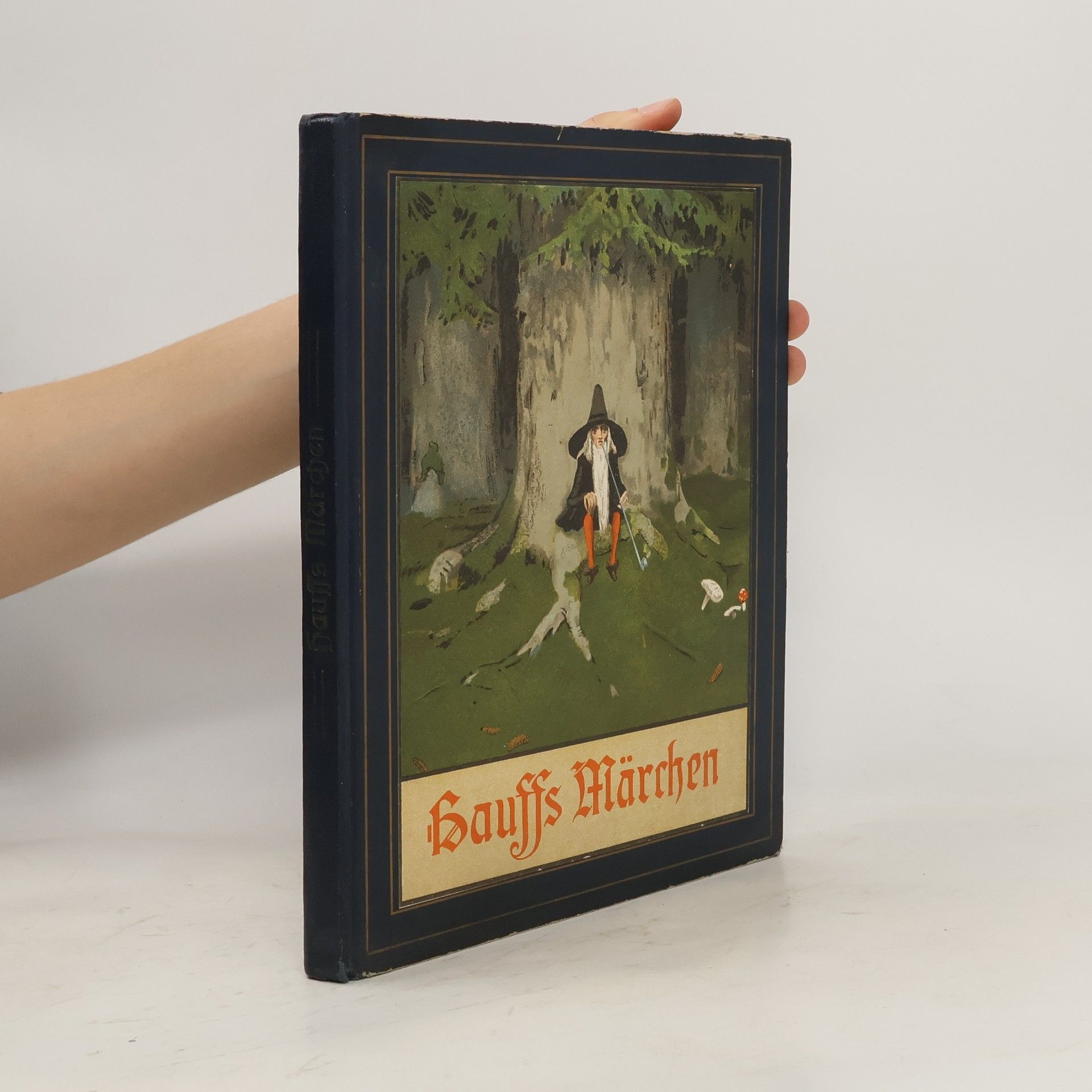Qui pourrait reconnatre en ce nain difforme, afflig d'un long nez et de doigts en pattes d'araigne, le petit Jacob, ce joli garon que l'on voyait tous les jours sur le march, en compagnie de sa mre, la marchande de lgumes Victime d'une vieille fe malfaisante qui l'a ensorcel, il a pass sept annes son service sous la peau d'un cureuil. Quand il recouvre la libert, Jacob ne tarde pas s'apercevoir qu'il a pris l'apparence d'un nain monstrueux. Repouss par ses parents, tourn en drision, Jacob, devenu "Long Nez", saura cependant, grce ses extraordinaires talents de cuisinier, gagner les faveurs du duc de Franconie et s'attirer le respect de tous. Jusqu'au jour o le duc lui demande de confectionner le pt suzerain, un plat dont il n'a jamais entendu parler.
Wilhelm Hauff Livres
Wilhelm Hauff était un poète et romancier allemand célèbre pour ses contes de fées. Il possédait un don narratif et inventif, combinant des thèmes extérieurs avec sa propre voix unique et un esprit agréable et souvent vif. Son œuvre témoigne d'une forte influence d'E.T.A. Hoffmann dans ses éléments fantastiques, tandis que ses romans historiques offraient les premières imitations du style de Sir Walter Scott. Les contes de fées de Hauff, publiés dans un almanach, ont connu une popularité durable, cimentant sa réputation de conteur talentueux.







La Caravane. Le cheik d'Alexandrie
- 222pages
- 8 heures de lecture
The book is a facsimile reprint of a scarce antiquarian work, preserving its original content despite potential imperfections like marks and flawed pages. Emphasizing its cultural significance, this edition aims to protect and promote important literature by providing an affordable, high-quality reproduction that remains faithful to the original.
German Moonlight
- 22pages
- 1 heure de lecture
Significant throughout human history, this book has been preserved and republished in a modern format to ensure its continued relevance for present and future generations. Its enduring importance highlights the value of its content, making it a vital resource for readers interested in its themes and insights.
THE BANISHED A SWABIAN HISTORICAL TALE Vol. 1
- 122pages
- 5 heures de lecture
Set against the scenic Swabian Jura, the novella follows Count Wilhelm von S. after his banishment from his family estate due to a conflict with his father. Determined to forge his own path, he embarks on a journey filled with challenges and discoveries, aided by a mysterious old man who gifts him a magical pocket of wealth. The narrative blends romance, adventure, and societal critique, exploring themes of wealth, power, and social expectations with humor and satire, showcasing Hauff's storytelling prowess and depth in character development.
THE BANISHED A SWABIAN HISTORICAL TALE Vol. 3
- 110pages
- 4 heures de lecture
Count Wilhelm von S. faces banishment from his family estate, setting him on a journey filled with romance, adventure, and societal critique in the picturesque Swabian Jura. As he seeks to forge his own destiny, he encounters a mysterious old man who gifts him a magical pocket that offers endless wealth. The novella blends humor, satire, and social commentary, exploring themes of wealth, power, and societal expectations. Hauff's storytelling enriches Wilhelm's character and presents an engaging narrative that reflects on the complexities of human experience in a historical context.
THE BANISHED A SWABIAN HISTORICAL TALE
- 332pages
- 12 heures de lecture
Set against the picturesque Swabian Jura, this novella follows Count Wilhelm von S, who is banished from his estate after a conflict with his father. Seeking fortune and independence, he embarks on an adventurous journey, aided by a mysterious old man and a magical wallet that provides endless money. As Wilhelm navigates various challenges, the story weaves humor and satire with a critical examination of wealth, power, and societal norms. Hauff's narrative blends entertainment with moral lessons, showcasing his storytelling talent and poignant legacy.
THE BANISHED A SWABIAN HISTORICAL TALE Vol. 2
- 114pages
- 4 heures de lecture
Set against the scenic Swabian Jura, this novella follows Count Wilhelm von S. after his banishment from his family estate. Determined to shape his own destiny, he embarks on a journey filled with challenges and self-discovery. A mysterious old man gifts him a magical pocket that provides endless wealth, leading to encounters that blend humor, satire, and social critique. Hauff skillfully explores themes of wealth, power, and societal expectations, offering a rich continuation of Wilhelm's adventures and a thoughtful reflection on human experience.
The Banished
A Swabian Historical Tale, Edited By James Morier, Esq. (Complete Edition Of Three Volumes, Vol. I. - III.)
- 290pages
- 11 heures de lecture
Set in Swabia, this historical tale weaves a rich narrative that explores themes of exile, identity, and societal change. The story follows characters navigating the complexities of their lives amid historical events, showcasing the cultural and social dynamics of the region. Edited by James Morier, this complete three-volume edition offers a deep dive into the intricacies of the era, blending personal struggles with broader historical contexts, making it a compelling read for those interested in historical fiction and regional narratives.
